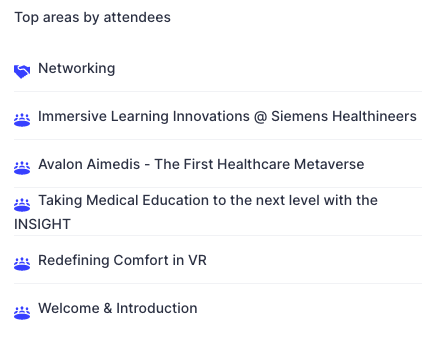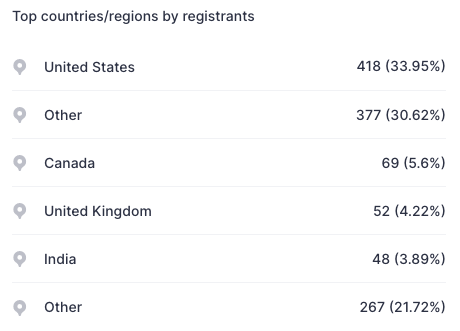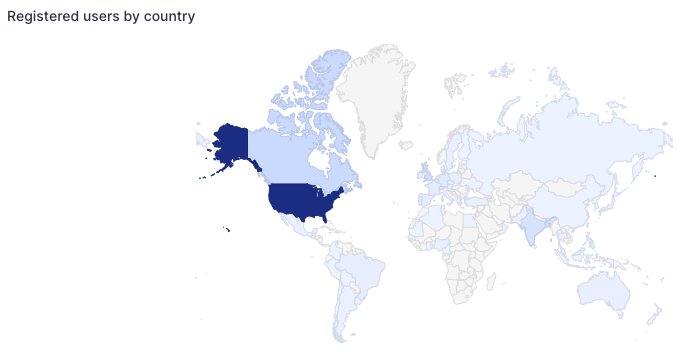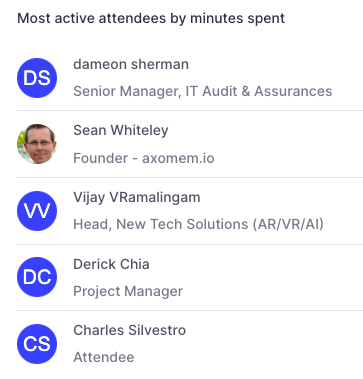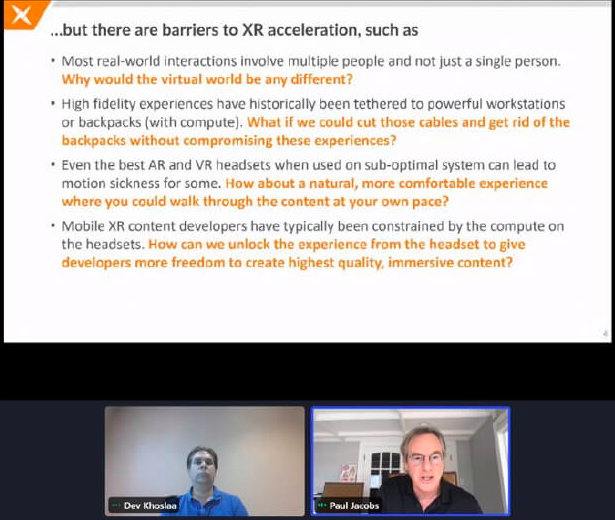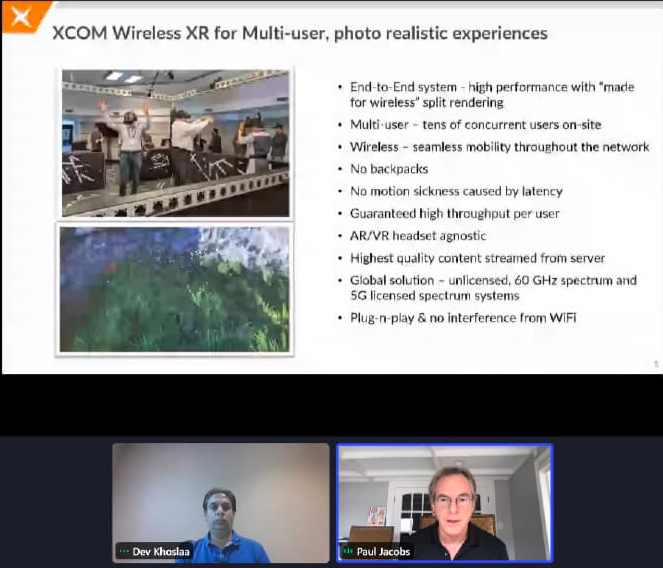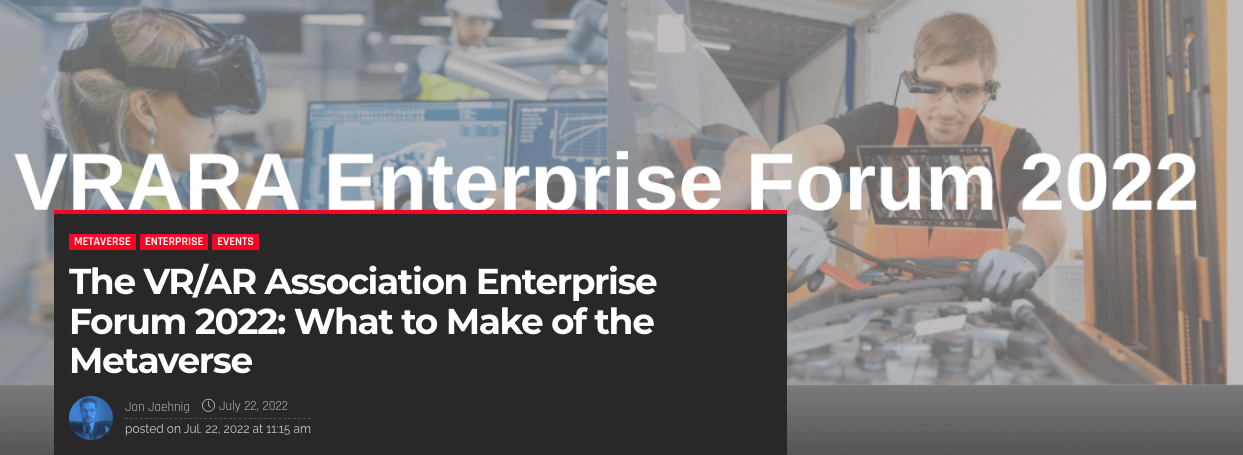The VR/AR Association Enterprise Forum 2022: What to Make of the Metaverse
XR solution providers and enterprises using (or exploring) XR met virtually yesterday, July 21, for the VR/AR Association Enterprise Forum 2022. The six-hour marathon event covered a number of important topics, and not all sessions could be covered in this article.
One important question: Is there an enterprise metaverse and should anyone care?
The M Word
Mark Gröb, VR/AR Association Enterprise Committee Co-Chair and Head of Immersive Tech Center at UPS, started off the event with some observations from working with enterprises and XR solution providers. These observations hinted at both growth and challenge in the rapidly maturing market.
“Generally, in enterprise, no one is really exploring anymore. It’s not about [minimum viable products] and [proofs-of-concept], it’s more about well-thought-out solutions,” said Gröb. “Enterprise is starting to expect XR to meet all of the requirements of standard technologies.”
“Everyone in enterprise is basically rolling their eyes at the M word,” said Gröb. “The understanding is that the M word is not applicable to enterprise.”
The extent to which the metaverse is applicable to enterprise was a topic of discussion in “Leap into the Industrial Metaverse” by Percy Stocker of TeamViewer. Stoker expressed acceptance generally, but with caveats in some enterprise applications.
“The question is, if you’re a business… is this for me? What are my touchpoints in the metaverse?” said Stocker. “About 80 percent of the world’s workforce are deskless workers and the question is do we want to leave them out of this? Of course we don’t.”
Transitional Technology
Stocker then posed that while most conversations about the metaverse involve complete virtual environments and VR, augmented reality plays a role too. Further, while enterprise-ready AR and MR headsets are out there, more widely available connected devices are also important.
“The good thing is that it doesn’t matter where you start, you can scale from there,” said Stocker. “We see phones and tablets as a transitional technology. Of course, companies have lots of those, they’ve already invested a lot in that technology.”
The hardware can be transitional, but so can the software. This was a recurring point for Mark Wenzowski of Virtalis in his talk, “Why the Future of Industrial Learning Is Immersive.”
“You don’t have to build something big with all of the bells and whistles right out of the gate,” said Wenzowski. “Build something small and utilize it.”
The Challenges of Scaling
Scaling from tablets and smartphones would be a theme through a number of talks at the event. It was directly tackled by Chris Verret in his talk “From Warfighter to Workforce – Modernizing Critical Training with VR.” Verret is the President and co-founder of HTX Labs, an immersive education and training company.
“Many customers in the private sector have problems taking concepts and proofs-of-principle in XR and actually scaling them,” said Verret. “A lot of times, you have to trade immersiveness for scalability. We’ve seen that time and again in defense and in commercial enterprise.”
The problem of scale featured in many sessions but was the primary focus for Luke Wilson in his talk “Scaling to Thousands of Devices.” Wilson is the CEO and founder of ManageXR, a mobile device management (MDM) company dedicated to VR headsets. While AR can be used on phones and tablets, robust VR requires its own headsets.
“Whether or not VR can be adopted is a question of whether or not VR can be scaled,” said Wilson. “The challenges of scale are preventing the adoption of this technology.”
Just like some companies try to explore XR using existing devices, some companies try to use familiar MDMs, which typically don’t optimize for headsets. This was the focus of “Why Legacy MDMs Are Failing Companies Today in XR” by Brad Scoggin, founder and CEO of XR MDM company ArborXR.
“An XR-specific MDM is absolutely a must if you’re dealing with ten or more headsets,” said Scoggin. Scoggin also pointed out that using the wrong MDM on an early XR project can have long-term consequences in a company, saying, “VR is like a lot of things in life – you only get one chance at a first impression.”
Community and the Metaverse
Some companies don’t adopt or scale XR because of a bad first impression or because they don’t understand it or how it benefits their business. Others don’t because they just never will. At least, that was the stance of Oregon Reality Lab Director Dr. Donna Davis in her talk “My Work Avatar: Harnessing the Power of the Metaverse for Marketing and Communication.”
“Right now, we’re in the moment on the adoption curve where there’s a lot of mistrust,” said Davis. “There are people that will never embrace it, and that’s okay. We don’t need them. Let those people go.”
Davis is one of those people that believes that the metaverse is relevant to enterprise, but only those who recognize the opportunity. According to Davis, it’s not about engaging with the tech, it’s about engaging with the people.
“At the end of the day, community is what we can do with the metaverse,” said Davis. “How do we build community? That’s where the magic happens with marketing and communications.”
Community in the metaverse was also a topic for Liquid Avatar Technologies CEO David Lucatch in his talk “Bringing Enterprises, Non-Profits, and Cause Marketing Together in the Metaverse.” Lucatch touched on the idea that we will have avatars, but so will embodied AIs that will be employed by companies but also – potentially – by bad actors.
“Our avatars will be our interactive mediums, so it will be very important to understand that that avatar is being managed by a real person,” said Lucatch.
Panels Round Off the Day
The day ended with two panel discussions. These tied together a lot of the strands from the day’s sessions.
XR as an Enterprise Onramp to the Metaverse
The final event of the day circled back to the first discussion: Is there a place for the metaverse in enterprise? This panel discussion suggests that it may be early, but this seems to be the direction in which things are headed.
“Right now, every company has a dedicated web team, and I see a world where that translates into XR,” said NYU’s Immersive Tech Developer Andrew Strapp. “Right now, content is king – and content is everything in VR.”
The panel also discussed what happens when companies take the onramp to the metaverse – but they’re used to driving county roads. Starting off with phones and tablets can help but it can also be a hindrance, according to ATS emerging technology strategist Cindy Mallory.
“One of the hurdles that you have in introducing people to VR, especially in enterprise, is that people are so used to these pinch, swipe, tap interfaces,” said Mallory.
Enterprise Adoption of XR
In the end, a lot of the questions that plague XR generally are naturally also a problem for XR in enterprise. These systemic things need to be addressed, including accessibility, security, and the difficulty of producing content.
“We need to make it easier for developers, but also for the end users to consume content,” said Blippar CEO Faisal Galaria. “This interoperability issue needs to be solved.”
For a day dedicated to discussing technology, technology needs to take a back seat in order for larger things to happen. That was the idea presented by Dev Khoslaa of XCOM Labs.
“In order to drive ubiquity, it’s going to be important to drive scale to unlock seamless mobility,” said Khoslaa. “We need to take technology impediments out of the equation.”
Of course, the answer might really be more technology. Or at least, different technology. The solution to the problems of XR might lie in other emerging technologies. That was the position of 21iQLabs CEO Vivek Chhabra.
“The key to solving this is to marry WebXR to Web3 technologies,” said Chhabra. “Web3 consolidates these technologies to bring it toward a metaverse phenomenon.”
For all of the technology that is thrown at the problem, there will still be human questions that need human answers. Like, who “owns” a shared experience.
“There’s really no law that gives us a clear answer on that,” said Lyn Dee, founder of Four.
“And we don’t own that, we just wield it,” added Jessica Cobb.
Worth Paying Attention
If you are in enterprise (and missed the summit), hopefully this was a thrilling article. If you aren’t in enterprise and read along until the end, chances are that you understand the importance of things like “onramps to the metaverse.” Tech often makes its way through enterprise to the rest of us – even when the rest of us set the social stage for it in advance.
Source

